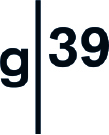Matinee
29 March - 22 April 2000

Ruth Pelopida, Trophies, 1999-2000.
After nearly one year in the dark, g39 is re-opening its doors with the new exhibition, 'Matinee.' This marks the relaunch of the gallery in its extended premises on Mill Lane, with a brand new ground floor and cutting-edge exhibitions profiling professional visual artists from Wales and abroad. The Lottery-funded venue begins its programme of events with an exhibition of four Wales-based artists who follow the minutiae of obsessive behaviour and methodical routine played out in personal and public environments.
Peter Bobby
In this work I have begun to look at spaces that are 'completed', therefore inhabited or fit for habitation. The function of the space is clear due to the addition of interior decor, including lighting, furniture and architectural features. However, the lack of human presence still importantly exists within these images. This human absence serves to refocus ones attention on the constructed environment, socially, politically and architecturally. The questioning of these environments through their design leads us to consider the positive and negative effects on an individual. This inevitably raises issues regarding power, class, place and social behaviour, to name a few.
I am interested in the here and now, the ways in which power is demonstrated and order supposedly regained. Consequently my focus is the city, not the hustle and bustle of the high street, but the buildings and spaces that people occupy in order to escape this chaos. Expression or representation of order serves to make people feel comfortable. Comfort = Power, their power, in operation. This interestingly leads to questions of visual stimulus, illusion and seduction.
Maura Hazelden
The domestic order of memory
The memory of domestic order
The order of domestic memory
Human consciousness and an asymmetrical universe make time appear to pass. How accurate is our memory? How much is invented? Do we notice when our memory recalls from invented experience? Nostalgia is faulty memory; an imagined memory of life as our grandparents, of a time we are born into but do not experience. Memory, like dreams, will not be pinned down, it has to be allowed to wander in order to function, there can be no grasping and holding.
The cognitive process of categorisation creates order and definition. Cups and saucers at 4.00pm tea, a properly set table, a place for everything and everything in its place. A precise flower arrangement; her socks always came up to her knees; the cups and saucers should never be stacked; her handwriting was so neat; white and pale collars and cuffs should always be folded in white tissue; why can't you be more like Jennifer? Keep the house clean and neat until there is no room for sensuality, the impulse is diverted beyond the self-sublimation. But it is still there.
Ruth Pelopida
One Night Stay is part of a series of works of intervention. During one-night stays in Cardiff Hotels I embroidered the bed sheets with my name and initials. After my departure the sheets would be washed and the bed remade for future guests to sleep in. It is my intention to subvert the cycle of distribution and use of the sheets and alter the identity of a usually anonymous object and the user response to it.
In this and other current work, I have been considering the evidence of people left by others in public spaces. For example the way in which graffiti subverts formal language and undermines the neutrality of public space and property with personal messages and how this deliberate residue compares in status, endurance and effect to the monuments commissioned to commemorate our collective experience.
In Trophies I transfer found text on to the plaques of sports trophies (an established means of acknowledging significant people and events). By displacing the graffiti, I elaborate on an individual's desire to leave their mark and in doing so create an art object to be viewed and documented in an effort to leave my mark.
Harriet Clarke
Photographs from Peter's Workshop
It is a long steep road away from the A470, the industrial belt of South Wales, into the more rural countryside of Pentyrch. Isolated from the mass-producing factories and industrial estates, Peter works in a converted chapel, meticulously restoring a church organ with an obsessive attention to detail that the hundred-year-old instrument deserves. In his untidy workshop he is exquisitely restoring all the intricate details of the 'electro-pneumatic under action', which has sixty-one identical parts, each with numerous minute components. This is a process that could only be undertaken by a character of fanatical perfectionism, divorced from the modern world of a conveyer-belt economy.
In a similar fastidious manner Harriet Clarke makes her pinhole photographs. Taken with a perfectly constructed wooden camera and an accurately sized pinhole punctured through a copper plate, the images produced exude a preciseness that only a strict methodology could have acquired. Depth of field, focal length, exposure and angle are all precisely calculated and scenes from the workshop are accurately recorded onto the transparency film, which in its unforgiving nature offers no opportunity for error. With her systematic approach Harriet places a kind of photographic order to the scattered chaos which is Peter's workshop.
In the gallery these five images sit elegantly on plinths displayed under the scrutiny of the magnifying glass. They sit as monuments to craftsmanship, a process the images document, but which is also employed in the production of this work.
- The following Artists were in this show:
- Ruth Pelopida
- Harriet Clarke
- Maura Hazelden
- Pete Bobby













